MCG can assist you to put into place your choices and decisions regarding medical, financial and personal aspects of your life.
PROBATE MATTERS
Over 30 years of experience in Probate Matters
Trusted advice. We do our best to maintain a reputation for skill and professionalism, and exceed expectations.
Guardianships (Elders and Minors)
A guardian is a surrogate decision-maker appointed by the court to make either personal and/or financial decisions for a minor or for an adult with mental or physical disabilities. A guardian may be appointed of the person, property or both of the Ward. In an adult guardianship, the court may determine whether a person is totally or partially incapacitated. If found to be incapacitated in any respect, the court recommends that a guardian be appointed as a limited guardian to perform only those rights that the Ward is incapable of exercising or a plenary guardian to perform all rights.
Emergency Temporary Guardianships
If there exists imminent danger to the physical, mental wellbeing or property (such as elder exploitation) of an alleged incapacitated person, then the court may appoint an emergency temporary guardian. The emergency temporary guardian's authority ends in 90 days after their appointment or once a guardian is appointed.
Durable Power of Attorney
Among the estate planning documents you should consider, the durable power of attorney is among the most utilized. A durable power of attorney may serve to potentially avoid the need for a formal guardianship because the power of attorney is not terminated by your subsequent incapacity. it allows your designated agent to make certain financial decisions for you in the event you are unable to do so.
Designation of Health Care Surrogate
Florida law permits you to designate a surrogate to make healthcare decisions on your behalf and to provide, withhold or withdraw consent. It is important this document is signed properly to be valid in order for your family and treating physician to honor it.
Pre-Need Guardian
You should consider naming a pre-need guardian if you want to designate who you would want to be appointed as your legal guardian to make decisions regarding your person and/or property in the event that you are declared incapacitated in the future.
Living Will
A living will allows you to direct your preference for healthcare or medical treatment in the event you are unable to make those decisions. For example, you do not want your life to be prolonged under certain circumstances. It is important this document is signed properly in order to be valid in order for your family and treating physician to honor it.
Last Will and Testament
If you intend to have your wishes honored as to how to distribute your assets upon your death, you should consider preparing a last will and testament. Otherwise, Florida’s intestacy laws will dictate how and to whom your assets will be distributed. You can also name a guardian to take care of your minor children within a will.
Guardian Advocate/Persons with Disabilities
A guardian advocate is appointed to assist and enable an adult with developmental disabilities (such as spina bifida, autism, downs syndrome and other disabilities) to be as independent as possible. This type of proceeding does not remove any rights from the adult who continues to retain his/her legal rights, but instead permits the guardian advocate to have authority to make decisions for the adult child.

